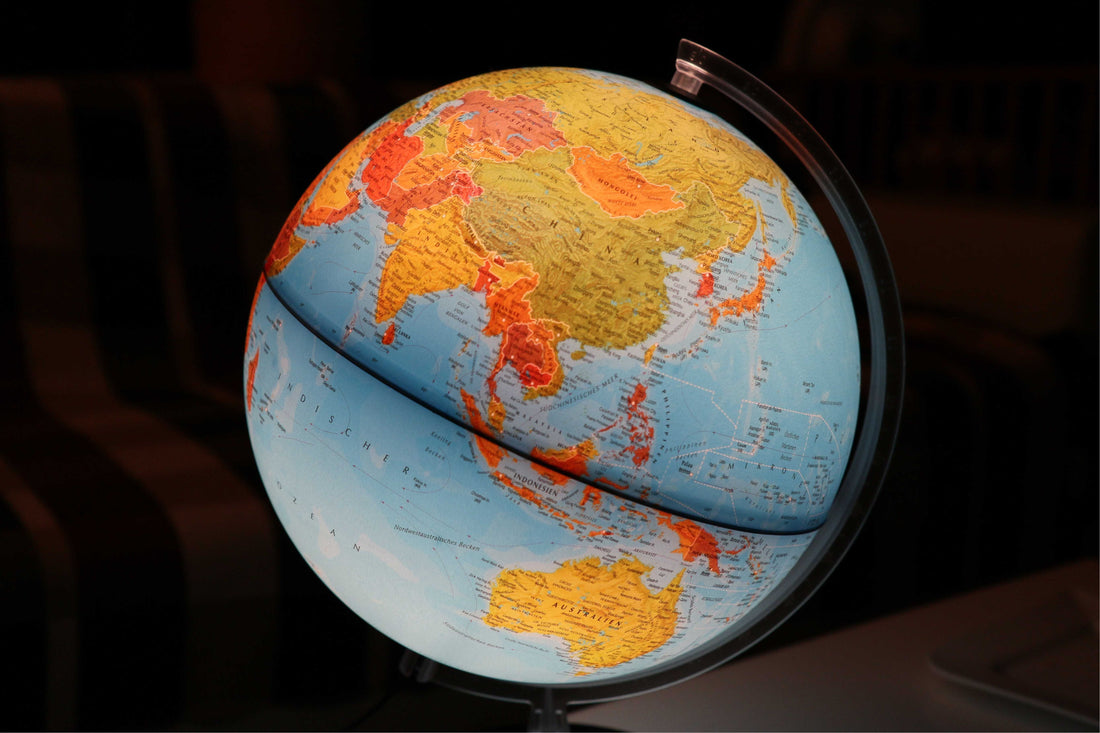Cannabidiol, or CBD, is a non-intoxicating cannabinoid found in the cannabis plant. It has gained popularity in recent years due to its potential health benefits. However, its legality varies from country to country.
In this blog, we will explore the legal status of CBD in different parts of the world and how it affects consumers and businesses. CBD is found in cannabis, which includes both hemp and marijuana.
North America

In the United States, federally, the 2018 Farm Bill removed hemp-derived CBD from the list of controlled substances, making it legal as long as it contains less than 0.3% THC (tetrahydrocannabinol).
However, CBD derived from marijuana is still considered a Schedule I drug and is illegal at the federal level. This has caused confusion for both consumers and businesses, as some states have their own laws regarding CBD.
For example, in California, CBD derived from both hemp and marijuana is legal for adult use, but in Idaho, CBD is illegal, regardless of which plant it is derived from.
Many states in the US have limitations on the amount of THC that can be present in full-spectrum CBD oil. Although the best CBD oils contain full spectrum hemp with 0.2% - 0.3% THC, states like Oregon limit the THC to 0.2% or 100mg per bottle and other states limit the THC content to 0, so it’s always best to research the rules and regulations for a state if you plan to travel to it with your CBD products.
Canada legalized the production and sale of cannabis, including CBD, in October 2018. However, CBD products must be produced in Canada, approved by Health Canada, and must not make any health claims in marketing the products. In Mexico, CBD is legal but can only be used for medicinal purposes with a doctor's prescription.
The legalization of CBD in North America has led to a booming industry, with CBD products available in various forms, such as oils, tinctures, edibles, and topicals. However, the regulations surrounding the production, distribution, and consumption of CBD are still evolving, and businesses must constantly navigate a complex legal landscape.
Europe

In Europe, the legality of CBD varies from country to country. The European Union (EU) considers CBD a novel food, meaning it must be approved before it can be marketed as a food product.
However, some EU member states have their own regulations regarding CBD. For example, in the former EU member country the UK, CBD products must be derived from hemp and contain less than 0.2% THC to be legal, while in Germany, CBD is legal as long as it is not marketed as a medicine.
In Spain, CBD is legal for personal use, but not for commercial purposes. This has led to a gray market, with CBD products sold in some shops and online platforms. In Italy, CBD products are legal as long as they contain less than 0.6% THC and are labeled as "not for human consumption."
The different regulations surrounding CBD in Europe have created challenges for businesses looking to operate across borders. For example, a CBD product legal in one country may be illegal in another, making it difficult to sell products across Europe.
It is difficult for travelers in Europe to know if they are following the law or not. For instance, the best full-spectrum CBD oils may contain 0.22% THC in them. They could be legal in Italy and Germany, in the gray market in Spain, and over the THC limit for the UK.
Sometimes it’s safest to travel with a THC-free CBD product, so as to not inadvertently break a law while still having your favorite products with you.
Asia and Oceania

Asia and Oceania have some of the strictest regulations on CBD. In China, CBD is strictly illegal, and the country's laws on cannabis are harsh. Japan has a similar approach, where CBD is only legal for medical use and possession of cannabis can result in imprisonment.
Australia and New Zealand allow the use of CBD for medical purposes, but the regulations are strict. In Australia, CBD can only be prescribed by a doctor and is only available from licensed dispensaries. In New Zealand, CBD can be prescribed by a doctor but is not widely available.
The strict regulations on CBD in Asia and Oceania have made it difficult for the CBD market to grow in these regions. However, there is potential for growth in the future, as attitudes towards cannabis and CBD are changing globally.
In Australia, for example, there has been a push to legalize recreational cannabis, which could lead to a change in the country's regulations on CBD.
In Japan, there has been a growing interest in CBD products, however, all cannabis products (including hemp-derived CBD) are illegal for both medicinal and recreational use.
CBD: Where you are matters
It is essential for consumers, travelers, and businesses to understand the legal status of CBD in their respective countries. For consumers and travelers, this means knowing whether they can possess, travel with, legally purchase and use CBD products in a particular region. For businesses, this means understanding the regulations surrounding the production, distribution, and sale of CBD products.
In countries where CBD is legal, consumers should still exercise caution when purchasing CBD products. It is important to do research on the company selling the product and to ensure that the product has been tested by a third-party laboratory.
Consumers should also be aware that the effectiveness of CBD products can vary, and there is still much research to be done on their potential benefits. In addition, if you plan to travel with your hemp-derived CBD products, always research and know the law before packing your CBD product.
No one wants to travel to a foreign country with a product that is legal in your home country and state, only to be breaking the law in the foreign country.
For businesses, navigating the legal landscape of CBD can be challenging. Companies must comply with regulations on the production, distribution, and sale of CBD products, which can vary between different countries and even between different states or regions within a country. Companies must also ensure that their products are accurately labeled and that they have been tested by a third-party laboratory.
The legal status of CBD varies greatly between different countries around the world. In North America, the legalization of CBD has led to a surge in demand for CBD products, while in Europe, the legal landscape is more complex.
Asia and Oceania have some of the strictest regulations on CBD, which has made it difficult for the CBD market to grow in these regions.
Understanding the legal status of CBD is essential for both consumers and businesses, and it is important to stay up-to-date on the latest regulations and laws surrounding it.
While CBD has the potential for many health benefits, it is important to exercise caution when purchasing and using CBD products, as more research is needed to fully understand their potential benefits and risks.

